BRANDED CONTENT
How do supermarkets in Singapore stay stocked even when the unexpected happens?
From using tech to preempt supply chain disruptions to working with farmers globally to ensure price stability, FairPrice Group is constantly innovating to take care of Singaporeans
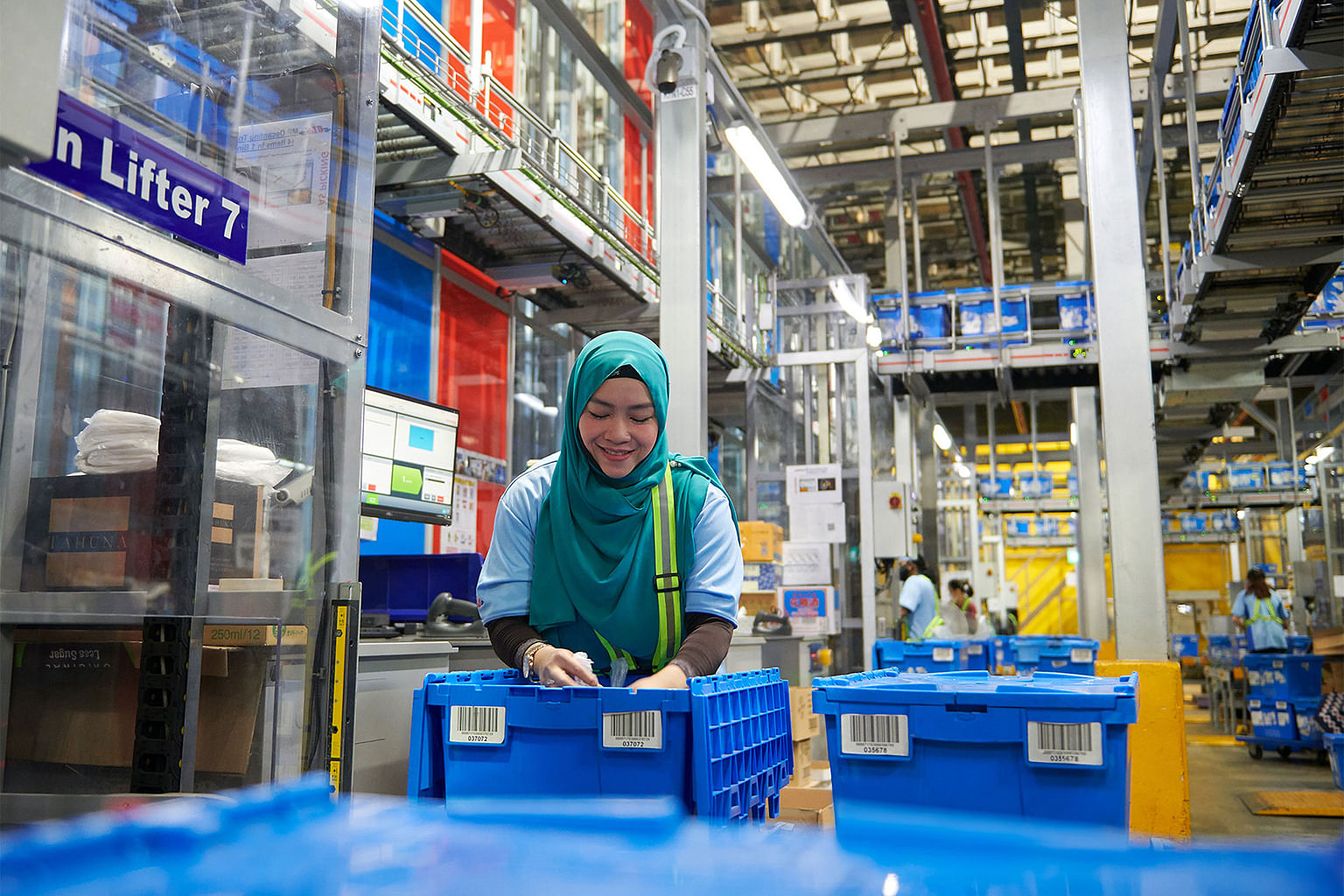
By diversifying its supply on a large scale, FairPrice ensures prices of its products are kept low. PHOTO: FAIRPRICE GROUP
When the pandemic hit Singapore, Antigen Rapid Test (ART) kits were sold at $12.80 a box at Unity as people rushed out to stock up as swabbing became a regular requirement.
While pharmacies were challenged with replenishing their shelves, Mr Tng Ah Yiam was given one of the biggest tests of his 41-year career with FairPrice Group.
The chief procurement officer’s “uphill task” was to source for cheaper alternatives so that more Singaporeans could do daily testing without feeling the pinch.
How do FairPrice supermarkets maintain a steady supply of products? Watch this video to find out.
Mr Tng, shares that while he had spent his career with FairPrice Group scouting for various sources of essential goods like vegetables and eggs, ART kits were a whole new ball game. They are medical-grade merchandise that must first be approved by the Health Sciences Authority.
Nevertheless, the industry veteran found a local manufacturer and FairPrice stores started selling ART kits at $4.90 per kit – less than half the price of those out in the market.
Not only did FairPrice Group make it more accessible for Singaporeans to test themselves regularly and stay safe, it also indirectly encouraged other retailers to stay competitive by lowering their ART kit prices.
With masks also in high demand during the pandemic, and knowing that they could not replenish these fast enough with their usual supply chain, the FairPrice team pivoted swiftly, sourcing masks from China and even chartering a plane to fly them into Singapore.
Safeguarding supplies of essential goods
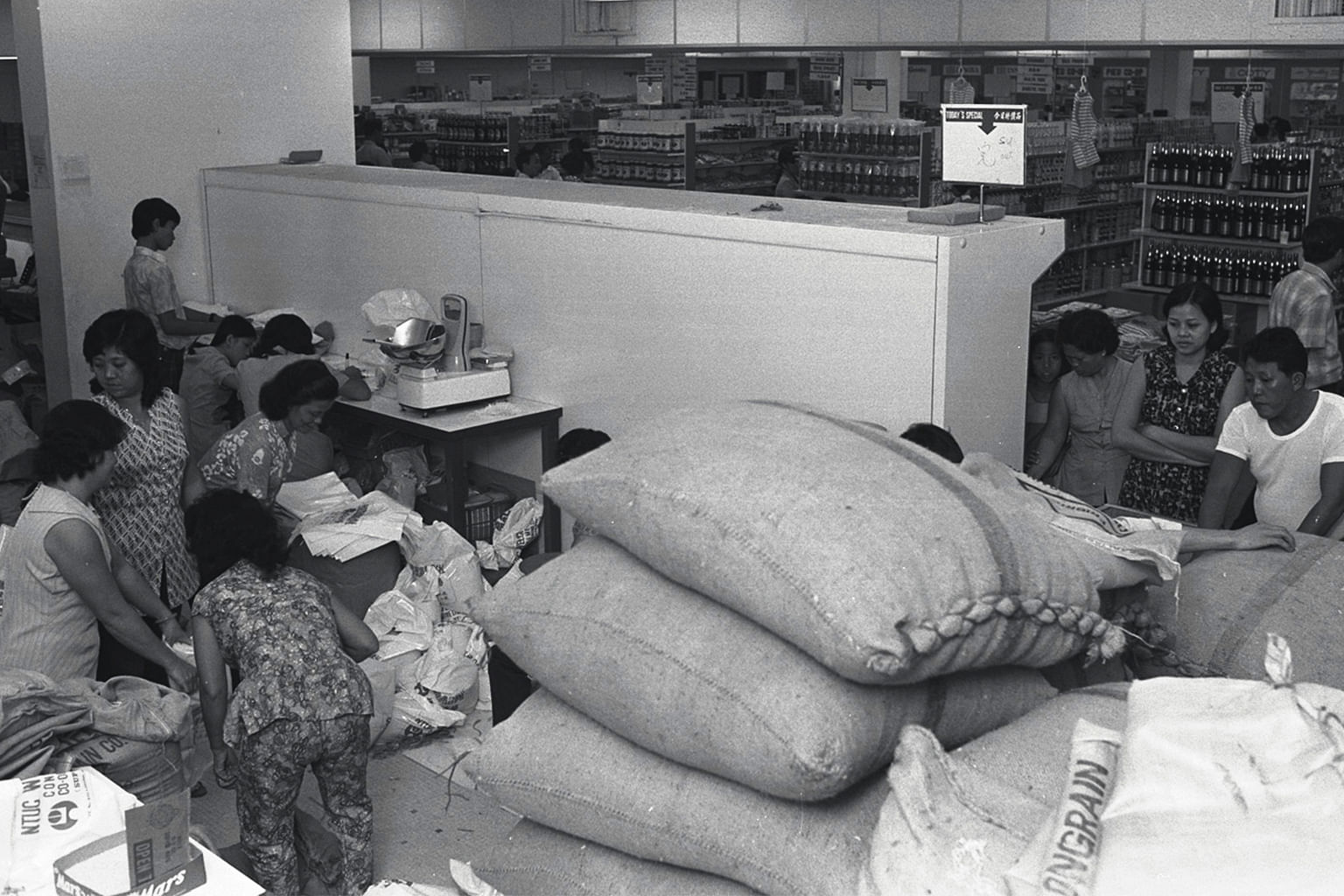
Taking care of Singaporeans is nothing new to FairPrice Group. It has been watching out for citizens since the Oil Crisis of the 1970s when many Singaporeans scrambled to find candles during the frequent blackouts.
The scarcity of candles and subsequent increase in food prices were triggered by the global oil crises. These were some of the factors that led to the establishment of NTUC Welcome 50 years ago. Its main purpose was to stabilise the cost of living and prevent profiteering.
It was also during this period that they started contributing to the national stockpile. One of the first things that went into this was rice which remains a stockpile mainstay even today.
This allows FairPrice Group to release supplies at regular prices even if there are external global factors like freight issues which can cause an upswing in prices. This can also help prevent profiteering as other market players will know that they do not have exclusive access to rice supplies during such circumstances.
Being the price moderator for grocery and household items has remained FairPrice Group’s key mission over the last five decades.
When a pandemic or world situation causes a fall in supply and a rise in demand, as with candles in the 1970s or masks in the last few years, profit and revenue become secondary for FairPrice Group. Its primary focus: be the first to jump in and do something for the people.
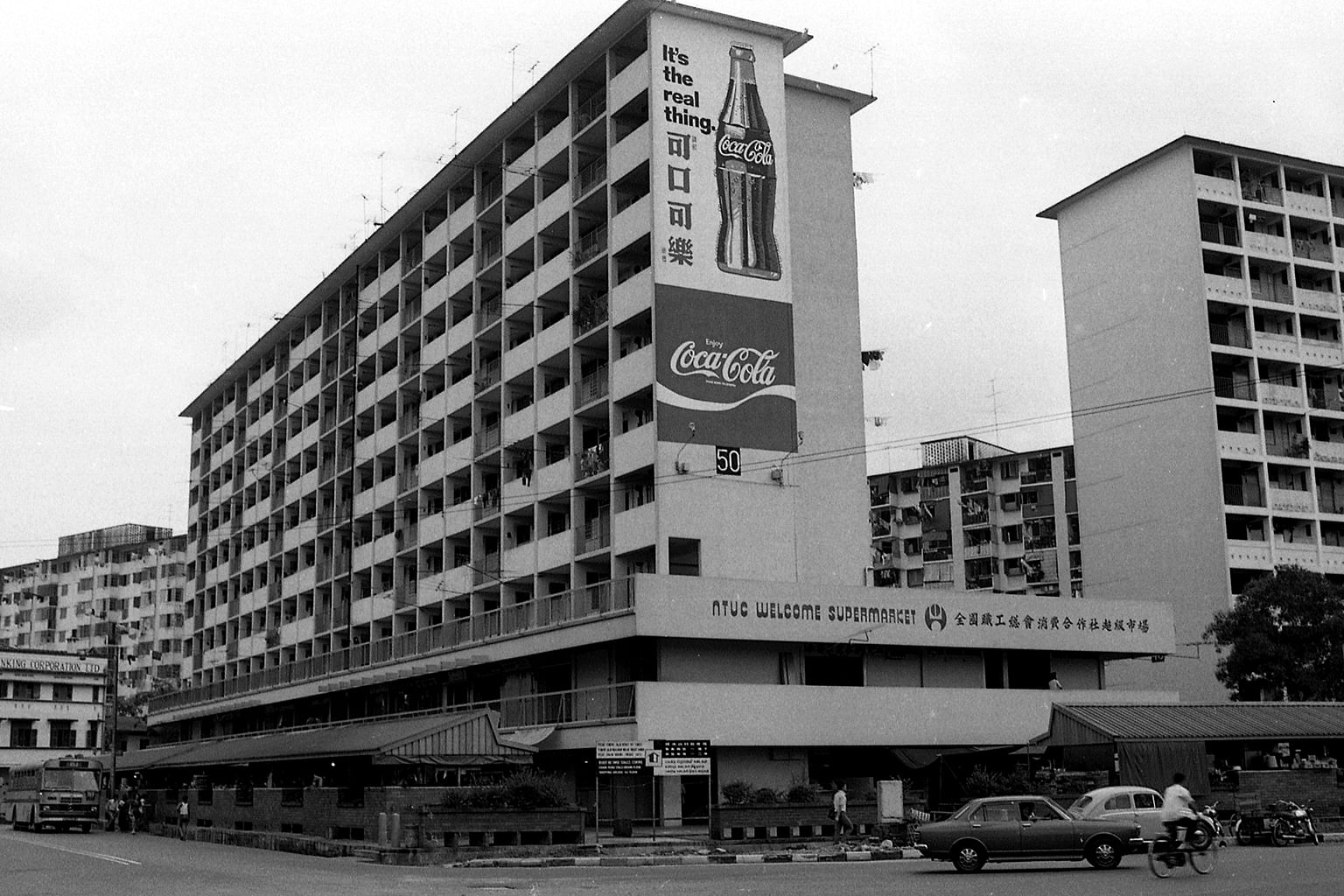
Its by-now memorable mantra is Everyday Low Price.
There are 153 stores around Singapore, from FairPrice supermarkets to FairPrice Xtra hypermarkets and FairPrice Finest stores. But it actually started off being known as NTUC Welcome and was initially set up to manage the cost of living for workers that NTUC, Singapore’s labour movement, represented.
In 1983, it merged with the Singapore Employees’ Co-Operative and grew to become FairPrice Group in 2019. The latter is now made up of four entities: NTUC FairPrice, NTUC Foodfare, Kopitiam, and NTUC Link
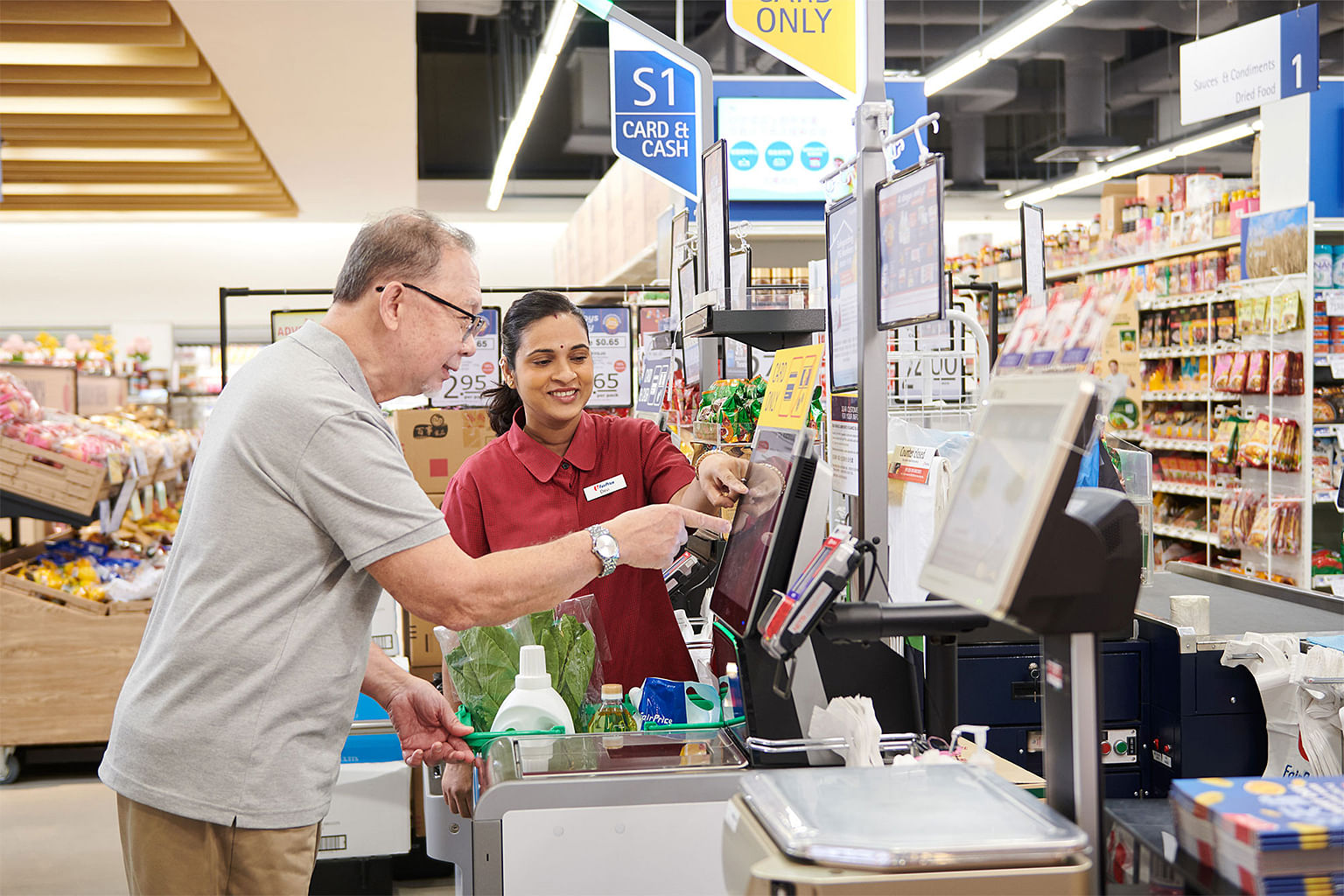
According to Mr Tng, the group strives to guarantee the lowest prices for about 500 types of daily essential products “that every household needs”.
One way it manages prices is by establishing good, long-term relationships with suppliers and practicing forward contract farming planning, says Mr Tng. This means that FairPrice works closely with farms to “tell them exactly how much xiao bai cai or cai xin we need”. As the planting-to-harvesting process for fresh produce like leafy vegetables takes at least 28 days, he says “you cannot over order or under order”.
Because of this continued long-term commitment from FairPrice, farmers take a long-term view of it too and offer better prices that are not subject to fluctuations during unseen situations like a drought.
FairPrice also has designated shopping days when certain groups of people can enjoy even more savings. For instance, on Mondays, Pioneer Generation cardholders get a 3 per cent discount on their purchases, and on Tuesdays, the Seniors Discount Scheme lets those aged 60 and above enjoy 2 per cent discounts. It also offers the Link Rewards Programme that allows members to save more on their purchases with reward points.
“We are the supermarket for all,” quips Mr Tng.
Building supply resilience
But to enjoy low prices, there must also be supply resilience. This is why FairPrice diversifies its sources on a large scale, something that Mr Tng says most customers aren’t aware of.
Leafy vegetables now come from Singapore and Malaysia farms but also from more than 15 other markets including North Sumatra and Batam. This diversification buffers any produce shortage in these countries.

Besides vegetables, another popular item is eggs which were only sourced from farms in Singapore and Malaysia for the past 20 years. Now, they are imported from more than 10 countries including New Zealand and Poland, and most recently, Brunei. This is crucial as Singaporeans consume more than three million eggs every day.
And since Singaporeans like their eggs semi-raw – think soft-boiled eggs with your morning kaya toast – this means that eggs are a strictly controlled item which can only be sourced from certified farms.
Besides paying attention to a strict food safety protocol for fresh eggs, FairPrice Group also has its eye on auditing organic farms because organic produce can be hard to differentiate from non-organic ones.
But there is also the issue of balancing diversification and food safety with cost, says Ms Qiao Jia Zeng, FairPrice Group’s chief supply chain officer.
“For example, the cost of frozen poultry from Brazil is low but there is a longer lead time for shipping and storage. We have to find suppliers that can meet our need for diversification yet give good economies of scale,” explains Ms Zeng.
Offering more choices at lower prices
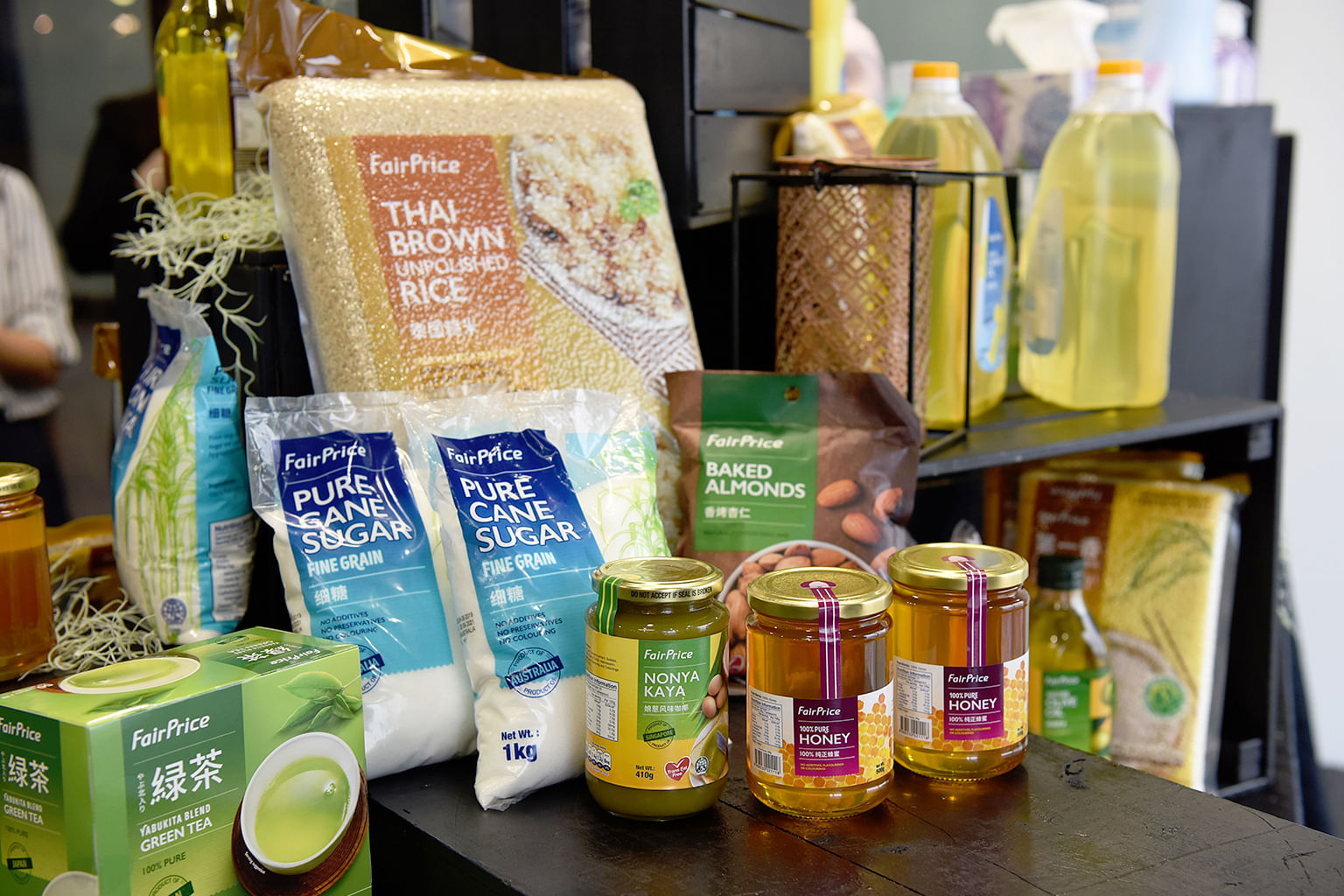
The Group has also been producing its own house brand range of essential goods since 1985. Today, it has 2,000 types of products, ranging from rice, sugar and baked almonds to its popular line of moreish potato chips priced at $1 a pack.
FairPrice’s house brand milk formula is made in Australia and costs less than $30 per can – approximately $20 lower than a premium brand with similar ingredients.
On how FairPrice decides which products to manufacture under the house brand, Mr Tng lets on: “Items with a high usage at home, like toilet paper and dishwashing liquid, and surprisingly, frozen roti prata! Anything that captures the hearts and minds of our customers.”
He says that a lot of hard work goes behind the scenes of producing these from scratch. For instance, blind-tasting sessions are held to ensure that the house brand range of potato chips is on par with those from more popular brands.
“We ensure the quality is there to make the customers come back for more,” adds Mr Tng.
Using tech to elevate the shopping experience
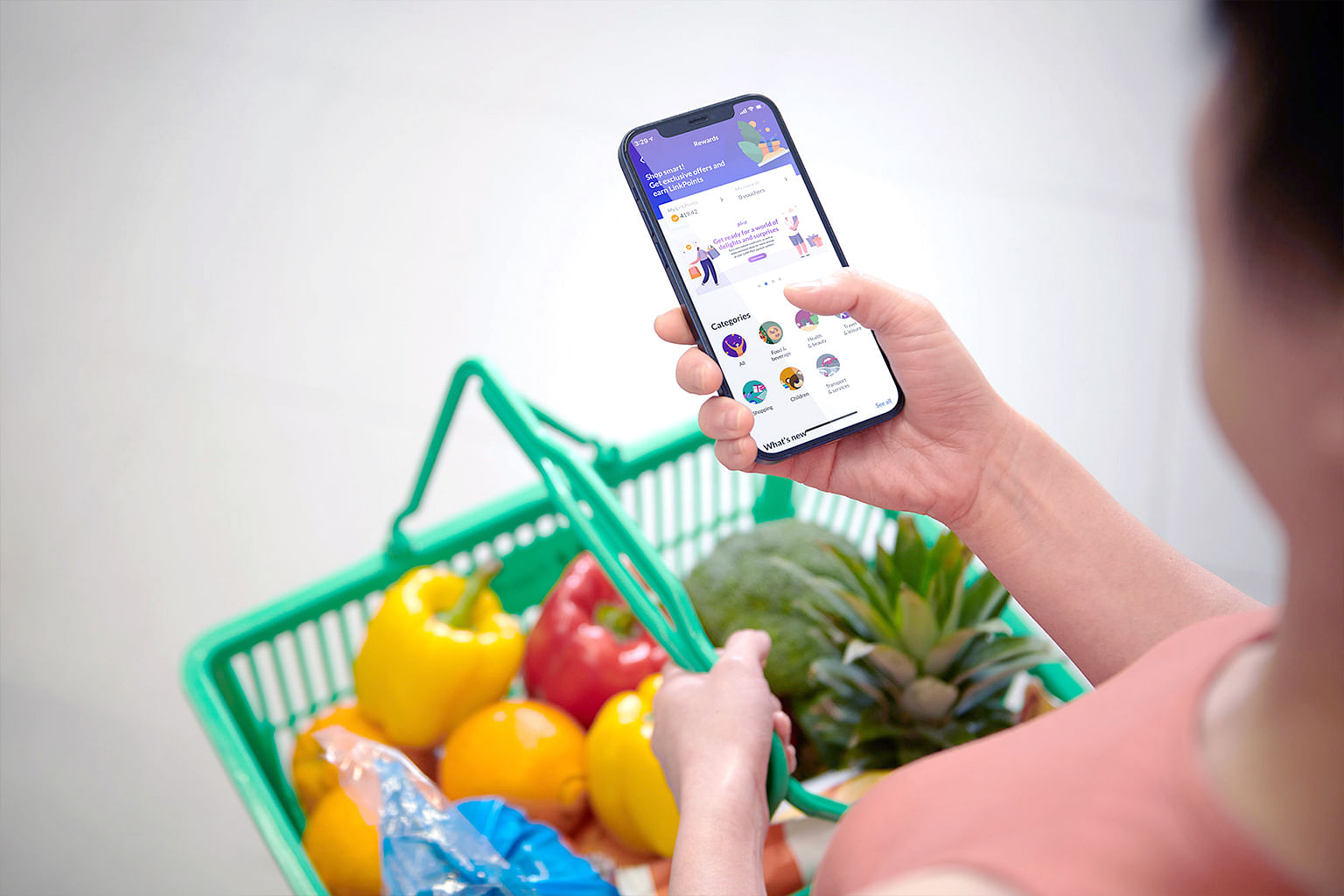
But when customers do come back for more, FairPrice has to ensure that its shelves are well stocked.
In the past, branch managers looked at merchandise on the shelves to gauge if quantities were running low. But this meant that stocks could not be ordered on time.
In 2021, FairPrice Group set up its Supply Chain Operation Centre (SCope) which monitors world news, shipping trends, commodity updates, prices and more. The system then gathers and analyses this data, and preempts FairPrice Group on how situations around the world, like the Suez Canal blockage in 2021, would affect the shipping of supplies to Singapore.
Ms Zeng says that as almost 80 per cent of FairPrice’s merchandise is imported, SCope warns her team of impending disruptions to the supply chain.
It also lets them track the progress of shipping containers on their way into Singapore. Previously, one of the main logistics challenges Ms Zeng faced was only knowing about the status of the containers after they had arrived in Singapore, which is usually too late, especially for seasonal produce such as Mandarin oranges during the Chinese New Year. If the shipping is delayed anywhere on the route, the Group has to quickly scout for alternative sources. This underscores the importance of SCope's role.
Says Ms Zeng: “We've adapted a lot in terms of using automation and digitalisation to keep us agile, and help us see and control more beyond.”
For ease of shopping, FairPrice offers multiple payment options for its customers. It has the traditional cashier counters, self-checkout counters and Scan & Go, which allows you to scan and bag your items as you shop and pay using the FairPrice app at selected stores.
Then there is also using the app as a payment option at all stores, or shopping in-app or on the online store from the comfort of your home and enjoying the convenience of having your groceries delivered to your doorstep. Customers can also earn and redeem Linkpoints to enjoy promotions and discounts.
And while FairPrice Group has been stockpiling non-perishable essentials like rice and toilet paper in its warehouses, Ms Zeng points out that many customers do not know this.
“They only saw empty shelves and may panic buy, not knowing that more stocks are on their way from the warehouse. So, now we also have a roving truck system where trucks are sent quickly to replenish outlets where stocks for certain items are running low,” adds Ms Zeng.
To further safeguard food supplies, FairPrice recently acquired a pork distributor to better manage the supply of meat to stores. By the end of this year, it will have larger cold-chain storage premises for stockpiling frozen meat and for processing meat and seafood to customise the cuts for what the market needs.
On the endless work that goes on behind the scenes, Mr Tng says: “Our customers have been supporting us for 50 years. It is our job to make sure they do not need to panic buy eggs, chicken or toilet paper and that they know that they can depend on FairPrice as we are there for them, through bad or good times.”
Brought To You By FairPrice Group


